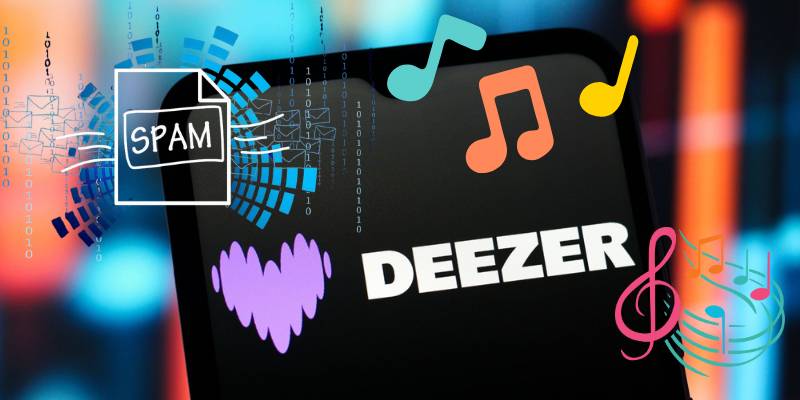The number is loud and a little unnerving: Deezer says it’s now ingesting over 30,000 fully AI-generated tracks every day, nearly a third of what arrives on its doorstep.
That isn’t a quirky blip; it’s a structural shift in the supply of “music.” I know, “slop of the pops” makes for a spicy headline—but the underlying signal matters more than the meme.
Deezer itself frames it as 28% of daily deliveries, up sharply from earlier this year, and ties the rise to a detection system it’s been ramping since January. The subtext is clear: they’re turning the lights on in a room that used to be mostly dark.
This didn’t come out of thin air. Back in June, Deezer rolled out AI tagging—labels that tell listeners when an album includes fully AI-generated tracks—alongside policy changes that keep such material out of recommendations and editorial playlists. If you’re an artist, that sounds like a sigh of relief; if you’re a spam farm, not so much.
Now here’s the part that made me push my chair back: up to 70% of plays on fully AI tracks were flagged as fraudulent, according to earlier reporting. That’s not an abstract moral panic; it’s money siphoned by bot loops and playlist mills.
Zoom the timeline: industry trackers saw the curve steepen through 2025—about 10k AI tracks a day when detection launched, ~20k by April, ~30k by early September. The slope, not just the step, is the story.
So what’s actually going on under the hood? Deezer claims it can reliably spot 100% AI-generated audio from the most popular models (think Suno and Udio) and is generalizing beyond model-specific fingerprints.
That’s a bold claim—and to be fair, they’ve been filing patents and iterating since January.
Of course, those model names aren’t just floating in a vacuum. The legal weather is stormy: the major labels sued Suno and Udio in U.S. courts over alleged mass infringement for training material.
However those cases land, every platform is reading the tea leaves and tightening provenance rules.
Let’s talk feelings for a second—because musicians have them (and yes, reporters too). I winced at the phrase “AI slop,” but I’ve also heard the weary tone from working producers who now compete with infinite-length “mood” loops.
The economic anxiety isn’t imaginary: a global study commissioned by CISAC warns that music creators could lose roughly a quarter of their income by 2028 if generative supply keeps flooding in without clearer rules.
Where does that leave the rest of us on a random Wednesday in September? Here’s the practical loop I hear from labels and distributors: provenance + policy + pacing. Provenance: label what’s synthetic and how (Deezer’s doing this).
Policy: strip fraud plays from payouts and quarantine the long-tail junk from discovery surfaces. Pacing: slow down ingestion pipelines just enough to run the checks. None of that is artistic; all of it protects the conditions for art.
You may ask, “Isn’t this just another platform promising to care?” Fair question. The difference, for the moment, is visible enforcement—public labeling, exclusion from algorithmic boosts, and a willingness to publish uncomfortable numbers.
And yes, that invites scrutiny. Good. The only way to keep the incentives honest is to keep them inspectable.
Artists, quick gut-check for you: if your distributor lets you add verifiable credits, stem metadata, or even future content credentials for audio, do it. It’s boring admin now but it separates human work from machine-spammed wallpaper later.
If you’re a team lead, rehearse a fraud-response playbook like you’d rehearse a live set—because at this pace, you’ll need it.
And because the internet loves receipts, one more for the road: if you want a snapshot of where the cultural debate is heading—beyond charts and takedowns—this week’s Financial Times Tech Tonic episode sketches the ethics fight musicians are bracing for.
Bottom line: Deezer’s 30,000-a-day is less a headline and more a yardstick. The firehose is on. The real news is whether the industry treats moderation, fraud-fighting, and transparent labeling as unglamorous but permanent infrastructure. For once, I’m rooting for the plumbing.

